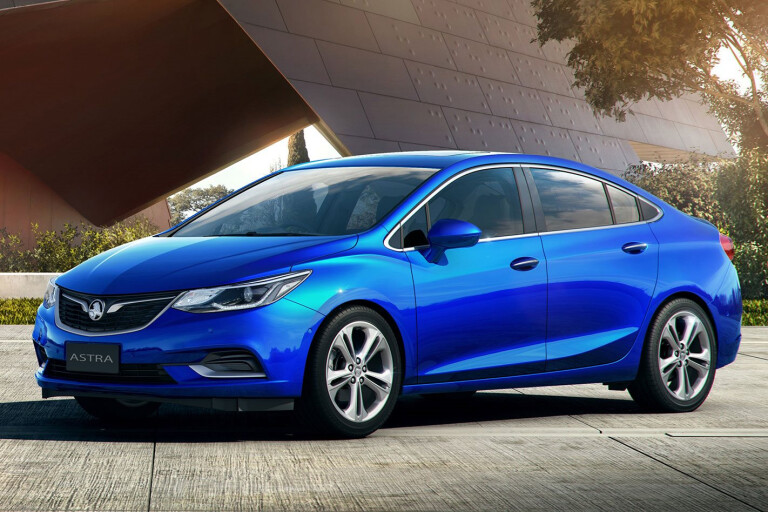
THE future of Holden’s fleet-friendly Astra sedan is up in the air after General Motors announced overnight it will close one of its four South Korean manufacturing plants and book a $A1 billion hit to its bottom line.
The US-based global car maker is expected to make a decision on what will happen with the three remaining plants within weeks, media has reported.
“GM Korea Company (GM Korea) announced today that it will cease production and close its Gunsan plant by the end of May 2018,” the car maker said in a statement. “The Gunsan facility has been increasingly underutilised, running at about 20 percent of capacity over the past three years, making continued operations unsustainable.”
According to GM, its South Korean division has sustained “significant losses for the past several years”. The Chevrolet Cruze-based Astra sedan is built at Busan, while the Opel Astra hatch is sourced from Poland and the Opel Astra wagon comes from GM’s Vauxhall manufacturing operations in Britain.
Holden said its plans for the Busan-built Chevrolet Cruze sedan's future in Australia remained "unchanged at this time".
The decision to remain in South Korea – GM claims its business there supports up to 200,000 jobs directly and indirectly, and was responsible for more than 390,000 exports – will rest largely with what it calls a “concrete plan to stay in the country and turn the business around that requires the full support of all parties”.
“The performance of our operations in South Korea needs to be urgently addressed by GM Korea and its key stakeholders,” GM International president Barry Engle said.
“As we are at a critical juncture of needing to make product allocation decisions, the ongoing discussions must demonstrate significant progress by the end of February, when GM will make important decisions on next steps.”
GM Korea was a business built out of the collapse of South Korean manufacturer Daewoo, which last sold cars here in 2004. In a twist of fate, Australian car maker Holden, which also happened to oversee the local distributorship of the Korean brand’s products and had even sold a rebadged Torana in the South-East Asian country, bailed Daewoo out and added the new source of cheap cars to GM’s global products family, rebadged as Holden and Chevrolet models.
By 2011, GM Korea, as it was renamed, was responsible for one in every four Chevrolet-badged cars sold globally. In Australia, it was responsible for some of the most miserable products to ever grace Holden’s showrooms – with special mention going to the Daewoo Kalos-based Barina.
Holden has since shifted its focus to more premium products, although the Korean-sourced Chevrolet Spark, Chevrolet Sonic-based Barina, Chevrolet Trax small SUV, and Chevrolet Captiva all still come here wearing Holden badges – as does the Astra sedan.
GM has struggled with rising costs in the South-East Asian nation as union-backed wage growth – often won via protracted and at times crippling industrial action – negated many of the benefits the car maker gained from having its manufacturing hub based in the country.

COMMENTS